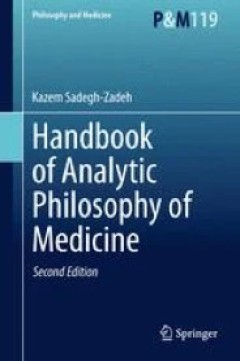Filter by

The Pedagogics of Liberation : A Latin American Philosophy of Education
"Enrique Dussel is considered one of the founding philosophers of liberation in the Latin American tradition, an influential arm of what is now called decoloniality. While he is astoundingly prolific, relatively few of his works can be found in English translation — and none of these focus specifically on education. Founding members of the Latin American Philosophy of Education Society David …
- Edition
- -
- ISBN/ISSN
- 9781950192274
- Collation
- 204 halaman
- Series Title
- -
- Call Number
- 370 DUS p

Escape Philosophy Journeys Beyond the Human Body
The physical body has often been seen as a prison, as something to be escaped by any means necessary: technology, mechanization, drugs and sensory deprivation, alien abduction, Rapture, or even death and extinction. Taking in horror movies from David Cronenberg and UFO encounters, metal bands such as Godflesh, ketamine experiments, AI, and cybernetics, Escape Philosophy is an exploration of the…
- Edition
- -
- ISBN/ISSN
- 9781685710637
- Collation
- -
- Series Title
- -
- Call Number
- -

On the daimonion of Socrates : Plutarch
Plutarch's dialogue On the daimonion of Socrates is a unique combination of exciting historical romance and serious philosophical and religious discussion. The volume offers a range of essays on themes providing further insights into this masterly literary piece: on the historical, religious and philosophical background and on thematic connections with other works by Plutarch
- Edition
- -
- ISBN/ISSN
- 9783161501388
- Collation
- -
- Series Title
- SAPERE
- Call Number
- 900 DAI

Manifesto for a Post-Critical Pedagogy
The belief in the transformative potential of education has long underpinned critical educational theory. But its concerns have also been largely political and economic, using education as the means to achieve a better – or ideal – future state: of equality and social justice. Our concern is not whether such a state can be realized. Rather, the belief in the transformative potential of educ…
- Edition
- -
- ISBN/ISSN
- 9781947447387
- Collation
- 110 halaman
- Series Title
- -
- Call Number
- 370 HOD m

Conceptual change in biology : scientific and philosophical perspectives on e…
This volume explores questions about conceptual change from both scientific and philosophical viewpoints by analyzing the recent history of evolutionary developmental biology. It features revised papers that originated from the workshop "Conceptual Change in Biological Science: Evolutionary Developmental Biology, 1981-2011" held at the Max Planck Institute for the History of Science in Berlin i…
- Edition
- -
- ISBN/ISSN
- 9789401794121
- Collation
- xvii, 490 pages
- Series Title
- -
- Call Number
- 155.7

Art's Teachings, Teaching's Art: Philosophical, Critical and Educational Musings
This volume examines the interface between the teachings of art and the art of teaching, and asserts the centrality of aesthetics for rethinking education. Many of the essays in this collection claim a direct connection between critical thinking, democratic dissensus, and anti-racist pedagogy with aesthetic experiences. They argue that aesthetics should be reconceptualized less as mere art appr…
- Edition
- Ed. 1
- ISBN/ISSN
- 978-94-017-7191-7
- Collation
- XI, 249
- Series Title
- Contemporary Philosophies and Theories in Education
- Call Number
- 370 ART a

Steal This Classroom : Teaching and Learning Unbound
Jody Cohen and Anne Dalke construe “classrooms” as testing grounds, paradoxically boxed-in spaces that cannot keep their promise to enclose, categorize, or name. Exploring what is usually left out can create conditions ripe for breaking through, where real and abstract reverse and melt, the distinction between them disappearing. These are ecotones, transitional spaces that are testing groun…
- Edition
- -
- ISBN/ISSN
- 9781950192380
- Collation
- -
- Series Title
- -
- Call Number
- 101

Handbook of Analytic Philosophy of Medicine
Kazem Sadegh-Zadeh (born 23 April 1942) is an analytic philosopher of medicine. He studied medicine and philosophy at the German universities of Münster, Berlin, and Göttingen with Internship and residency 1967-1971, assistant professor 1972-1982, full professor of philosophy of medicine at the University of Münster 1982-2004. Sadegh-Zadeh was born in Tabriz, Iran. He has made significant co…
- Edition
- -
- ISBN/ISSN
- 978-94-017-9578-4
- Collation
- XXXVIII, 1224
- Series Title
- -
- Call Number
- 610 SAD h

The Origins of Self
The Origins of Self explores the role that selfhood plays in defining human society, and each human individual in that society. It considers the genetic and cultural origins of self, the role that self plays in socialisation and language, and the types of self we generate in our individual journeys to and through adulthood. Edwardes argues that other awareness is a relatively early evolutionary…
- Edition
- -
- ISBN/ISSN
- 9781787356306
- Collation
- -
- Series Title
- -
- Call Number
- 401.9 EDW o

Religious Morality in John Henry Newman
This book is a systematic study of religious morality in the works of John Henry Newman (1801-1890). The work considers Newman’s widely discussed views on conscience and assent, analyzing his understanding of moral law and its relation to the development of moral doctrine in Church tradition. By integrating Newman’s religious epistemology and theological method, the author explores the her…
- Edition
- Ed. 1
- ISBN/ISSN
- 978-3-319-36245-8
- Collation
- -
- Series Title
- -
- Call Number
- -
 Computer Science, Information & General Works
Computer Science, Information & General Works  Philosophy & Psychology
Philosophy & Psychology  Religion
Religion  Social Sciences
Social Sciences  Language
Language  Pure Science
Pure Science  Applied Sciences
Applied Sciences  Art & Recreation
Art & Recreation  Literature
Literature  History & Geography
History & Geography